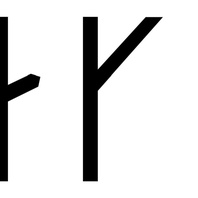
Viking Names
Aki
Áki is probably a diminutive of *ani, an unrecorded word related to Old Norse ái ‘great-grandfather’. The name is frequent in Denmark both independently and in place-names and likely originated in the Danish islands. It is also frequent in Sweden, but does not appear in Norway until about 1300. It is found in one Normandy place-name. The name is well-attested in Lincolnshire and Yorkshire, although some forms may represent the Old English male personal name Acca. Áki is also the first element in the place-name Oakthorpe, Leicestershire
Read More
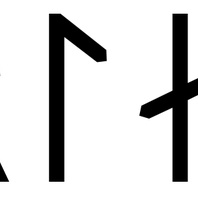
Viking Names
Thorlak
The male name Þorlákr is recorded in a number of Scandinavian runic inscriptions. It is rare in England but is possibly recorded in a minor name Thurlowbooth in Crich, Derbyshire. There is a further East Midlands connection, as its best-known bearer, the Icelandic bishop Þorlákr, studied in Lincoln in the twelfth century.
Read More
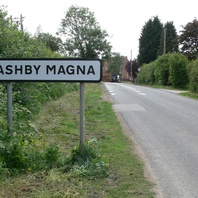
Viking Names
Ashby Magna
Ashby Magna, in the Guthlaxton Hundred of Leicestershire, is likely an Anglo-Scandinavian name coming from Old English æsc ‘ash-tree’ and Old Norse by ‘a farmstead, a village’. Some spellings may show influence of Old Norse eski ‘a place growing with ash-trees’ or even Old English esce ‘a stand of ash-trees’ on the first element. Ashby is a common place-name, but is is uncertain whether this name is an Old English creation Scandinavianized (i.e replacing Old English tun ‘an enclosure; a farmstead; a village; an estate’ with Old Norse by) or whether the name is fully Scandinavian in origin, with Old English æsc (Middle English ash) replacing Old Norse askr ‘ash-tree’. The affix Medieval Latin magna ‘great’ differentiates the township from Ashby Parva, which lies approximately three miles to the south-west.
Read More
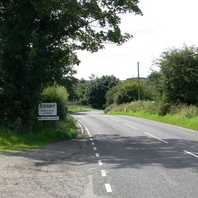
Viking Names
Cosby
The first element of Cosby, in the Guthlaxton Hundred of Leicestershire, is uncertain. It is likely the Old Norse male personal name Kopsi or Kofsi (genitive singular Kofsa) with Kofsa– assimilated to Cossa-. Alternatively the first element could be the Old English male personal name Cos(s)a which appears in such place-names as Cosham, Hampshire, Corsham, Wilshire and Cossington, Leicestershire. The second element is Old Norse by ‘a farmstead, a village’.
Read More

Viking Names
Coston
Coston, in the Framland Hundred of Leicestershire, is a Anglo-Scandinavian hybrid place-name probably coming from the Old Norse male personal name Kátr (genitive singular Káts), presumably an original byname from the Old Norse adjective kátr ‘glad’, combined with the Old English tun ‘an enclosure; a farmstead; a village; an estate’.
Read More
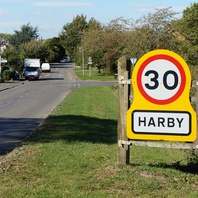
Viking Names
Harby
Harby, in the Framland Hundred of Leicestershire, contains the Old Norse element by ‘farmstead, village’. The first element has been a matter of discussion. The most recent scholarly opinion is that it is most likely from either Old English heorde ‘herdsman’, or Old Norse hjọrð ‘herd’, so either ‘farmstead or village of the herdsmen’ or ‘the herd farm’. For a village of the same name in Nottinghamshire it has also been suggested that the first element is the Old Norse male personal name Herrøðr, though this is now considered less likely.
Read More
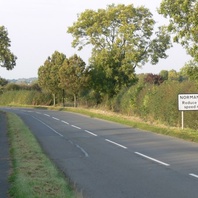
Viking Names
Normanton
Normanton, in the Framland Hundred of Leicestershire, takes its name from the Old English ethnonym Norðman ‘Northman, Norwegian’ and the Old English element tun ‘farm, settlement’. There are several places of this name, predominantly in the East Midlands: five in Nottinghamshire, and some in Derbyshire, Leicestershire, Lincolnshire and Rutland, and one in the West Riding of Yorkshire. The settlement lies in the Vale of Belvoir and previously had the affix in le Vale. Traditionally, the place-name has been interpreted as referring to a settlement of Norwegians (in an area where most of the Scandinavian settlers were Danes). However, the exact implications of such a name are not yet fully understood and are the subject of ongoing work by Dr Jayne Carroll of the Institute for Name-Studies, University of Nottingham.
Read More
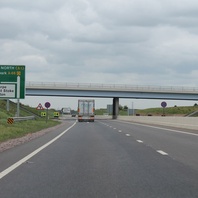
Viking Names
Elston
Elston, in the Newark Wapentake of Nottinghamshire, comes from the Old Norse male personal name Eiláfr or perhaps Eilífr and Old English tun ‘farm, settlement’. It is thus a hybrid name.
Read More
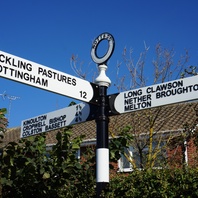
Viking Names
Hickling
Hickling, in the Bingham Wapentake of Nottinghamshire, has a name that was given probably quite early in Anglo-Saxon times in Old English. It is also recorded relatively early, first in a 14th-century copy of a document originally written around 1000. The -ing suffix indicates that the name refers to a group of people, who belonged to or were named after a person called Hicel(a). It is therefore not a Viking name. However, it is included here because St Luke’s Church in Hickling is the location of an early medieval grave-cover that is often regarded as a ‘hogback’ a type of Anglo-Scandinavian monument generally found further north (indeed this would be the most southerly example). It is quite common for sculpture with Scandinavian features or showing Scandinavian influence to be found in villages with English names, and this applies to other forms of material culture too. There is therefore no automatic connection between the name of a place and other evidence for Scandinavian influence, and this raises many interesting questions about the processes of acculturation, integration and diaspora that resulted from the Viking invasions.
Read More
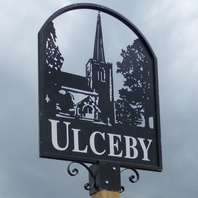
Viking Names
Ulceby
Ulceby, in the Yarborough Wapentake of Lincolnshire, is a Scandinavian compound from the Old Norse male personal name Ulfr and by ‘farm, settlement’. It is noteworthy that the first element has a Scandinavian genitive (a case that indicates relationships or ownership), as in the identical name Ulceby with Fordington and other place-names in Lincolnshire like Braceby, Haceby, Laceby, Rauceby and Winceby, and this survives today.
Read More
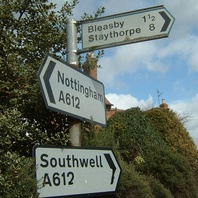
Viking Names
Bleasby
Bleasby, in the Thurgarton Wapentake of Nottinghamshire, was originally Blisetun, probably from the Old Norse male personal name Blesi and the Old English element tun ‘farm, settlement’. It was thus originally a hybrid name, like several others near it, such as Gonalston. By the thirteenth century, the second element had been replaced by Old Norse by ‘farm, settlement’.
